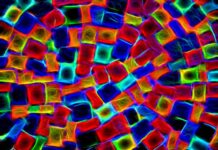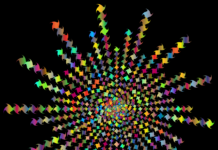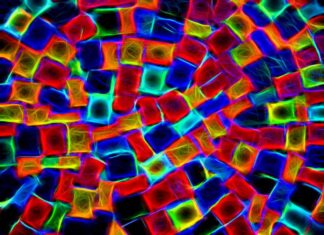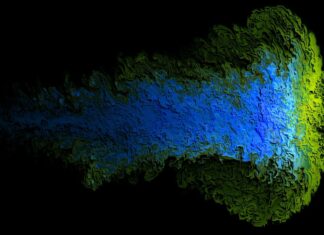AI-Generated Pharmaceuticals: Revolutionizing Drug Discovery and Development
In recent years, the intersection of artificial intelligence (AI) and pharmaceuticals has led to groundbreaking advancements in the field of drug discovery and development. This convergence has given rise to a novel approach known as AI-generated pharmaceuticals, which has the potential to revolutionize the way new drugs are identified, designed, and brought to market. By harnessing the computational power of AI, researchers and pharmaceutical companies are now able to accelerate the drug development process, reduce costs, and improve the efficiency of creating life-saving medications.
AI-generated pharmaceuticals represent a paradigm shift in the traditional drug discovery process. Historically, the journey from identifying a potential drug candidate to its approval for clinical use has been marked by arduous and time-consuming stages. These stages include target identification, compound screening, lead optimization, preclinical testing, clinical trials, and regulatory approvals. The process often takes years, if not decades, and is associated with high costs, significant resource utilization, and a high rate of failure. However, with the integration of AI, many of these challenges are being addressed, paving the way for a more streamlined and effective approach to pharmaceutical innovation.
At its core, AI-generated pharmaceuticals leverage the capabilities of machine learning, deep learning, and other AI techniques to expedite various stages of drug development. The marriage of AI and pharmaceuticals has been facilitated by the explosion of data in the life sciences, including genomics, proteomics, chemical databases, and clinical trial data. These vast datasets serve as the foundation upon which AI algorithms operate, enabling them to identify patterns, relationships, and potential drug candidates that might otherwise go unnoticed by human researchers. This synergy between data and AI has given rise to a multi-faceted transformation in the pharmaceutical landscape.
One of the foremost applications of AI-generated pharmaceuticals lies in target identification. Traditionally, drug discovery begins with the identification of a biological target, such as a specific protein or gene associated with a disease. AI algorithms can rapidly analyze extensive biological data to pinpoint potential targets that are implicated in various diseases. For instance, by analyzing genetic information from thousands of patients, AI can identify specific genes or proteins that play a role in the onset or progression of a disease. This accelerates the identification of potential drug targets and provides researchers with a more comprehensive understanding of the molecular underpinnings of various ailments.
Furthermore, AI-generated pharmaceuticals have redefined the process of compound screening. Once a target is identified, the next step involves screening thousands or even millions of chemical compounds to identify those that have the potential to interact with the target and elicit a desired therapeutic effect. Traditional methods involve extensive laboratory work, which is both time-consuming and resource-intensive. AI addresses this challenge by utilizing virtual screening techniques, wherein AI algorithms simulate the interaction between compounds and targets in silico. This enables the rapid identification of compounds with the highest likelihood of success, narrowing down the pool for further investigation.
Lead optimization, a critical phase of drug development, has also been revolutionized by AI-generated pharmaceuticals. After identifying initial hit compounds, the lead optimization phase involves refining these compounds to enhance their potency, selectivity, and safety profiles. AI-driven approaches facilitate the design of new molecules with improved properties. Generative models can propose novel chemical structures that are likely to exhibit the desired therapeutic effects, while also minimizing potential side effects. This not only expedites the lead optimization process but also enhances the likelihood of identifying a successful drug candidate.
In the realm of preclinical testing, AI-generated pharmaceuticals offer substantial benefits as well. Animal studies and in vitro experiments are traditionally employed to assess the safety and efficacy of drug candidates before proceeding to human clinical trials. However, AI can predict the potential toxicity of compounds by analyzing their chemical structures and comparing them to known toxic compounds. This predictive capability helps researchers prioritize the most promising candidates for preclinical testing, saving both time and resources.
Perhaps one of the most transformative aspects of AI-generated pharmaceuticals is its impact on clinical trials. Clinical trials are a pivotal phase in drug development, providing crucial evidence of a drug’s safety and efficacy in humans. However, these trials are often prolonged and resource-intensive, with recruitment challenges and a significant risk of failure. AI-driven patient recruitment algorithms can identify suitable candidates more efficiently, speeding up the enrollment process. Moreover, AI can analyze real-time clinical trial data to predict patient responses, allowing for adaptive trial designs that optimize treatment regimens and increase the likelihood of success.
Regulatory approval is the final hurdle in bringing a new drug to market. The integration of AI-generated pharmaceuticals in this domain involves analyzing vast amounts of historical regulatory data to predict the likelihood of approval for a new drug. This enables companies to make informed decisions about resource allocation and strategy, ultimately expediting the approval process.
In conclusion, AI-generated pharmaceuticals represent a seismic shift in the landscape of drug discovery and development. By harnessing the power of AI, researchers and pharmaceutical companies are accelerating the identification of drug targets, expediting compound screening, optimizing lead compounds, enhancing preclinical testing, streamlining clinical trials, and facilitating regulatory approvals. The synergy between AI algorithms and vast datasets has ushered in an era of unprecedented efficiency and innovation in pharmaceutical research. While challenges remain, including the need for robust validation and ethical considerations, the potential of AI-generated pharmaceuticals to save lives, reduce costs, and transform healthcare is undeniably promising. As AI continues to evolve, so too will its impact on pharmaceuticals, paving the way for a future where the discovery of life-saving medications is faster, smarter, and more accessible than ever before.
Accelerated Drug Discovery:
AI-generated pharmaceuticals expedite the process of drug discovery by leveraging machine learning algorithms to analyze vast datasets, identifying potential drug candidates and targets in a fraction of the time compared to traditional methods.
Target Identification:
AI algorithms analyze genetic, proteomic, and clinical data to pinpoint disease-related molecular targets, aiding researchers in understanding the underlying mechanisms of diseases and identifying novel therapeutic opportunities.
Virtual Compound Screening:
Instead of labor-intensive in vitro testing, AI enables virtual screening of millions of chemical compounds, predicting their potential interactions with target molecules and streamlining the identification of promising candidates.
Lead Optimization:
AI models design and propose novel chemical structures with optimized properties, enhancing the efficacy, safety, and selectivity of drug candidates during the lead optimization phase.
Predictive Toxicity Assessment:
AI predicts potential compound toxicity by analyzing chemical structures, reducing the need for extensive preclinical testing and helping researchers prioritize safer drug candidates.
Clinical Trial Optimization:
AI-driven patient recruitment algorithms identify suitable candidates for clinical trials more efficiently, while real-time data analysis facilitates adaptive trial designs, leading to faster enrollment, more informed decisions, and increased trial success rates.
Predictive Patient Responses:
AI analyzes clinical trial data to predict patient responses, optimizing treatment regimens and increasing the chances of successful outcomes in trials.
Regulatory Approval Insights:
AI analyzes historical regulatory data to predict the likelihood of drug approval, guiding resource allocation and strategy and expediting the regulatory approval process.
Customized Treatment:
AI-generated pharmaceuticals pave the way for personalized medicine by tailoring drug candidates to individual patient profiles, optimizing treatment effectiveness and minimizing adverse effects.
Cost Efficiency:
By reducing the time and resources required for various stages of drug development, AI-generated pharmaceuticals have the potential to significantly lower costs associated with research, development, and clinical trials.
The world of pharmaceuticals is on the brink of an extraordinary transformation, driven by the convergence of artificial intelligence (AI) and drug discovery. This intersection has birthed a novel approach known as AI-generated pharmaceuticals, fundamentally altering the landscape of how medications are developed, tested, and brought to market. This innovative synergy between AI and pharmaceuticals has ignited a renaissance, promising a future where the once-daunting barriers of drug development are overcome with unprecedented speed, accuracy, and efficiency.
In this new era, AI-generated pharmaceuticals stand as a testament to human ingenuity. The marriage of computational power and scientific exploration has given rise to a realm where algorithms dissect complex biological processes, navigating the intricate labyrinth of molecular interactions with an unmatched finesse. In the past, the journey from a vague concept to a marketable drug involved an intricate dance of scientific insight, meticulous experimentation, and a substantial dose of luck. But with AI, this dance has transformed into a synchronized symphony of data and computation.
The driving force behind the success of AI-generated pharmaceuticals lies in the veritable ocean of data that fuels these intelligent systems. The genomic revolution has unleashed a torrent of genetic information, offering a window into the building blocks of life itself. Proteomic datasets illuminate the diverse array of proteins orchestrating bodily functions, while clinical trial data narrates the complex stories of patient responses and treatment outcomes. In the past, these datasets were an overwhelming deluge, impossible for human researchers to navigate comprehensively. But AI thrives in such data-rich environments, turning the deluge into a treasure trove of insights waiting to be unearthed.
Imagine an AI algorithm poring over thousands of genetic sequences, spotting patterns indicative of a genetic mutation linked to a rare disease. This feat, which could take a human researcher years to accomplish, can be done by AI in a matter of hours. Picture a virtual experiment where AI simulates the interactions between thousands of potential drug compounds and a specific protein target, predicting with astonishing accuracy which molecules are most likely to succeed. Such simulations not only save time but also considerably reduce the resources required for experimental testing.
AI-generated pharmaceuticals have also become a bridge between disciplines that were once isolated in their silos. Computer scientists, biologists, chemists, and medical professionals are now collaborating more closely than ever. The language of algorithms intertwines with the language of proteins, fostering a new kind of interdisciplinary dialogue that unearths insights from unexpected angles. This fusion of minds not only accelerates drug discovery but also fosters a holistic understanding of diseases and potential treatments.
However, this evolution is not without its challenges. The transition to AI-generated pharmaceuticals demands the careful calibration of expectations. While AI holds immense promise, it is not a magical panacea that can instantly cure diseases. The journey from a computer-generated hypothesis to a clinically proven medication remains a rigorous one, necessitating validation, refinement, and regulatory approval. The role of human expertise remains pivotal in steering the AI ship, ensuring that it navigates ethically, safely, and with a genuine concern for patient well-being.
Furthermore, AI-generated pharmaceuticals beckon us to confront questions that transcend science and delve into the philosophical. As we delegate more decision-making authority to machines, the boundaries of accountability blur. Who bears responsibility when an AI-driven drug candidate fails in clinical trials? How do we reconcile the creative spark of drug discovery, often associated with human intuition, with algorithms generating chemical structures? These inquiries remind us that while AI accelerates progress, it simultaneously ushers in a new era of ethical contemplation.
In the grand tapestry of drug development, AI-generated pharmaceuticals are weaving a thread that transforms not only the scientific process but also the societal framework surrounding it. The cost of drug development, notorious for being exorbitant, could potentially witness a dramatic reduction as AI streamlines various stages, from compound screening to clinical trial optimization. This, in turn, could open avenues for developing medications for rare diseases and conditions that were previously deemed financially unviable.
Moreover, the democratization of drug discovery becomes a tangible possibility with AI. As AI algorithms learn from a diverse array of data sources, they have the potential to unearth treatments that cater to a broader spectrum of genetic, ethnic, and demographic backgrounds. This inclusivity is a stark departure from the traditional drug development model, which often gravitates towards diseases that afflict a larger population.
AI-generated pharmaceuticals also extend a hand to countries with limited resources. Historically, drug development was dominated by pharmaceutical giants with vast budgets. AI-driven drug discovery levels the playing field to an extent, allowing researchers in smaller organizations and even academic institutions to participate in the race to find new treatments. The democratization of information and computational resources has never been more pronounced.
The journey towards AI-generated pharmaceuticals is a testament to humanity’s unquenchable thirst for progress. It showcases our ability to innovate, adapt, and harness technology to overcome challenges that were once insurmountable. It symbolizes the transcendence of our limitations, as we delegate complex tasks to machines that not only compute but also comprehend. The evolution of AI-generated pharmaceuticals is more than just a scientific revolution; it is a declaration that we are standing at the precipice of a new era of human achievement.
In conclusion, AI-generated pharmaceuticals are the vanguards of a future where scientific discovery is empowered by the unprecedented capabilities of artificial intelligence. This journey is an intricate dance between data and algorithms, where AI sifts through the complexity of biology to unveil hidden insights. It signifies collaboration between diverse disciplines, propelling drug discovery into uncharted territory. While challenges and ethical considerations persist, the promise of accelerated drug development, cost reduction, democratization, and the convergence of human and machine expertise paints a vibrant picture of the road ahead. AI-generated pharmaceuticals are not just a scientific endeavor; they represent a testament to the remarkable potential of human imagination and innovation.






















